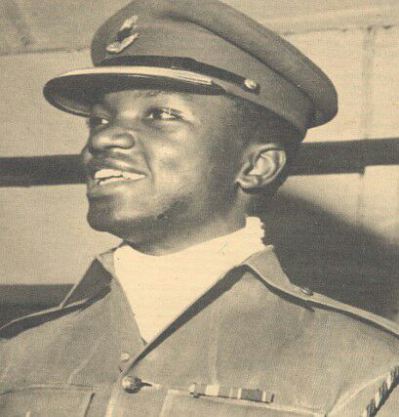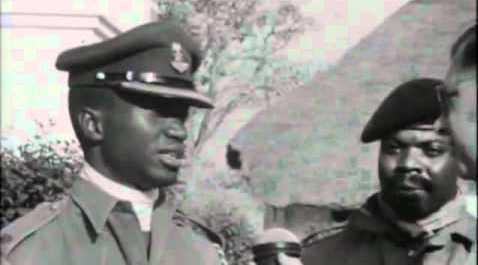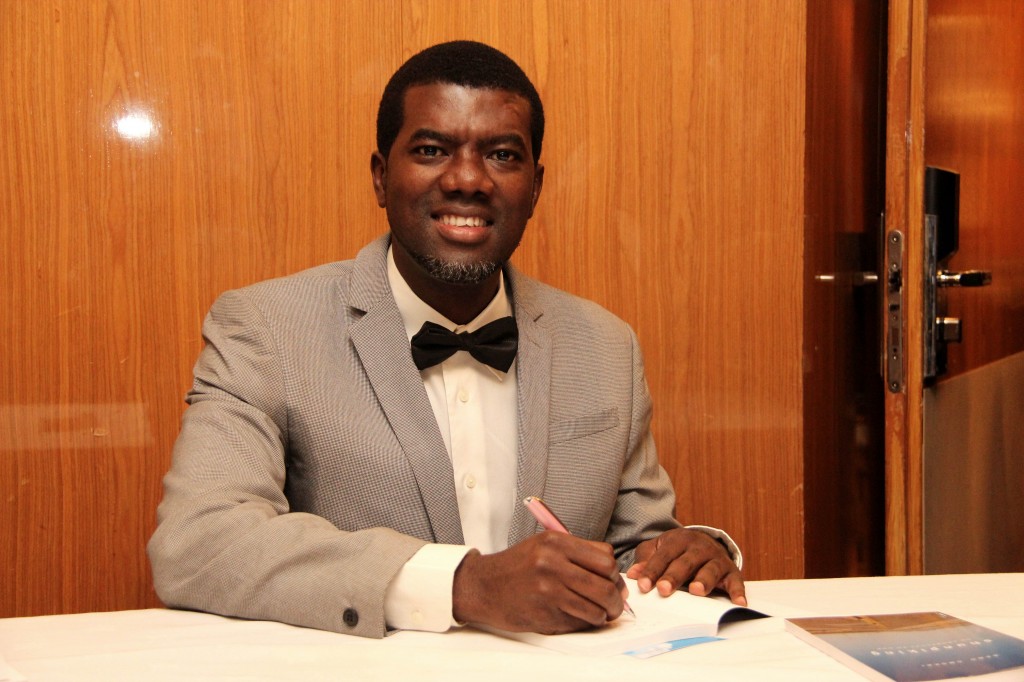[dropcap]T[/dropcap]he late Major Chukwuma Kaduna Nzeogwu has been my hero right from the time I became politically conscious, however, I wish he had not participated in the January 16th, 1966 coup.
I believe he was misled by people cleverer than him, who took advantage of his impulsive nature.
First and foremost, Nzeogwu was not a tribalist. I have many Igbo friends, and they may not like what I have to say, but Nzeogwu was more or less used by Major Emmanuel Arinze Ifeajuna and the other inner core coup plotters, who perhaps had an ethnic agenda.

The pattern of the killings by the Lagos putschists was undeniably ethnically inspired and those killings forever shattered the esprit de corp of the armed forces and the police.
Nzeogwu was not really in the inner core of the putschists who knew that he did not have an ethnic irredentist agenda. In fact, Nzeogwu was seen as something as an outsider to Ndi’Igbo.
This much was revealed in 1966 when the former Senate President, Nwafor Orizu, told Alhaji Shehu Shagari that Major Nzeogwu was “an unknown entity among the Ibos (sic) in the Eastern region.”
His acknowledged best friend during his lifetime was former President Olusegun Obasanjo, then a Major like him, and a Yoruba by nationality.

Nzeogwu was more fluent in Hausa and he adopted the Northern culture of taking the name of the town of one’s birth as a given name, hence he was known as Kaduna.
My personal belief is that if Nzeogwu had known of the intent of Ifeajuna et al, he would not have participated in the January 1966 coup.
This much was revealed by his answer to a particularly probing question from Dennis Ejindu in his May 1967. Excerpts of that interview went thus:
“Ejindu: All right. A lot has been talked and written about the January coup. But how tribalistic was it really in conception and execution?
Nzeogwu: In the North, no. In the South, yes. We were five in number, and initially we knew quite clearly what we wanted to do. We had a short list of people who were either undesirable for the future progress of the country or who by their positions at the time had to be sacrificed for peace and stability. Tribal considerations were completely out of our minds at this stage. But we had a set-back in the execution. Both of us in the North did our best. But the other three who were stationed in the South failed because of incompetence and misguided considerations in the eleventh hour. The most senior among them was in charge of a whole brigade and had all the excuse and opportunity in the world to mobilise his troops anywhere, anyhow and any time. He did it badly. In Lagos, even allowing for one or two genuine mistakes, the job was badly done. The Mid-West was never a big problem. But in the East, our major target, nothing practically was done. He and the others let us down.”
In fact, Nzeogwu never wanted the then Eastern Region of Nigeria to secede.
He had said in answer to a question on secession that “secession will be ill-advised, indeed impossible. Even if the East fights a war of secession and wins, it still cannot secede. Personally, I don’t like secession and if this country disintegrates, I shall pack up my things and go.”
Today, much of what I see displayed by Igbo politicians and citizens on traditional and social media show that the Igbo nation has not learnt the required lessons from what happened in the 1960s.
I believe that the Igbos are very intelligent and industrious. However, they are not superior to other ethnic nationalities in Nigeria. But there is that belief, among them, that they are better endowed intellectually than other nationalities and unlike many people who have superiority complexes, they have, by and large, an inability to hide that belief, which breeds resentment against them wherever they go.
I may go as far as to say that the Igbo man’s individualistic and town level efforts are superior to those of many other ethnic nationalities. But their sense of superiority and their inability to unite as a single ethnic nationality and speak and act with one voice is their greatest undoing.
As we mark 50 years of what has now been termed Nzeogwu’s coup, what a lot of people appear to have forgotten is that the coup was greeted with celebration, even in many parts of Northern Nigeria.
But in the aftermath of the coup, ordinary Igbos resident in the North were so triumphalist in their public behaviour and posture that this led to resentment against them, which was transferred to that man known as Nzeogwu.
There was a particular album waxed by an Igbo musician which, rightly or wrongly, was perceived by Northerners as mocking the death of Sardauna Ahmadu Bello.
Almanacs, some of which exist till date, glorified the killings. These actions were some of the remote sparks that ignited the pogrom of 1966/67.
But enough of the past. Let us focus on the future. What is the solution to the problems that militate against the unity of Nigeria and which themselves gave the spark to that ignited the whole nation fifty years ago?
I believe that the panacea to all claims of marginalisation and disunity in Nigeria is the implementation of the resolutions of the National Conference of 2014.
492 delegates and six conference officials were able to agree to the resolutions in the report of the conference either by consensus or via 75 percent majority threshold.
This has never been achieved in the history of Nigeria and no matter what anybody wants to say, that report remains a watershed in the history of Nigeria.
As we mark 50 years of that unfortunate day, Nigeria is today faced with a mix of circumstances that could make the future challenging, perhaps even grim.
Oil our mainstay, is trading at below $30 a barrel. Foreign Direct Investors are divesting from our economy in record numbers. For the first time ever, both the states and the Federal Government cannot guarantee that salaries will be paid, as and when due. Our currency is at its lowest ebb and today trades at ₦305 to $1.
We can keep pretending that all is well or we can accept the fact that there are rain clouds in the economic horizon and we have squandered what would have saved us on the rainy day.
Today, many of those who blame our current economic malaise on former President Jonathan were the very people who went to court to challenge that administration on its desire to save for the rainy day via the Excess Crude Account.
The fact is that there is enough blame to go round and if we do not end the blame game we would not be in a position to make the changes that will position our country to come out of these circumstances that militate against our growth and unity.
In his coup speech, Nzeogwu complained about “those that make the country look big for nothing before international circles”.
That was in 1966 when our population was less than 60 million and we were no where near among the top 10 largest countries in the world in terms of population.
Today, our population is estimated to be 170 million. This is three times the population of the country during the days of Nzeogwu.
We cannot afford to let anybody say that in 2026, we have become ‘bigger for nothing’.
Reno Omokri is the founder of the Mind of Christ Christian Center in California, author of Shunpiking: No Shortcuts to God and Why Jesus Wept and the host of Transformation with Reno Omokri (Monday at 12am on San Francisco’s KTLN, Chanel 25 on Comcast). He tweets from @RenoOmokri.
The opinions expressed in this article are solely those of the author







